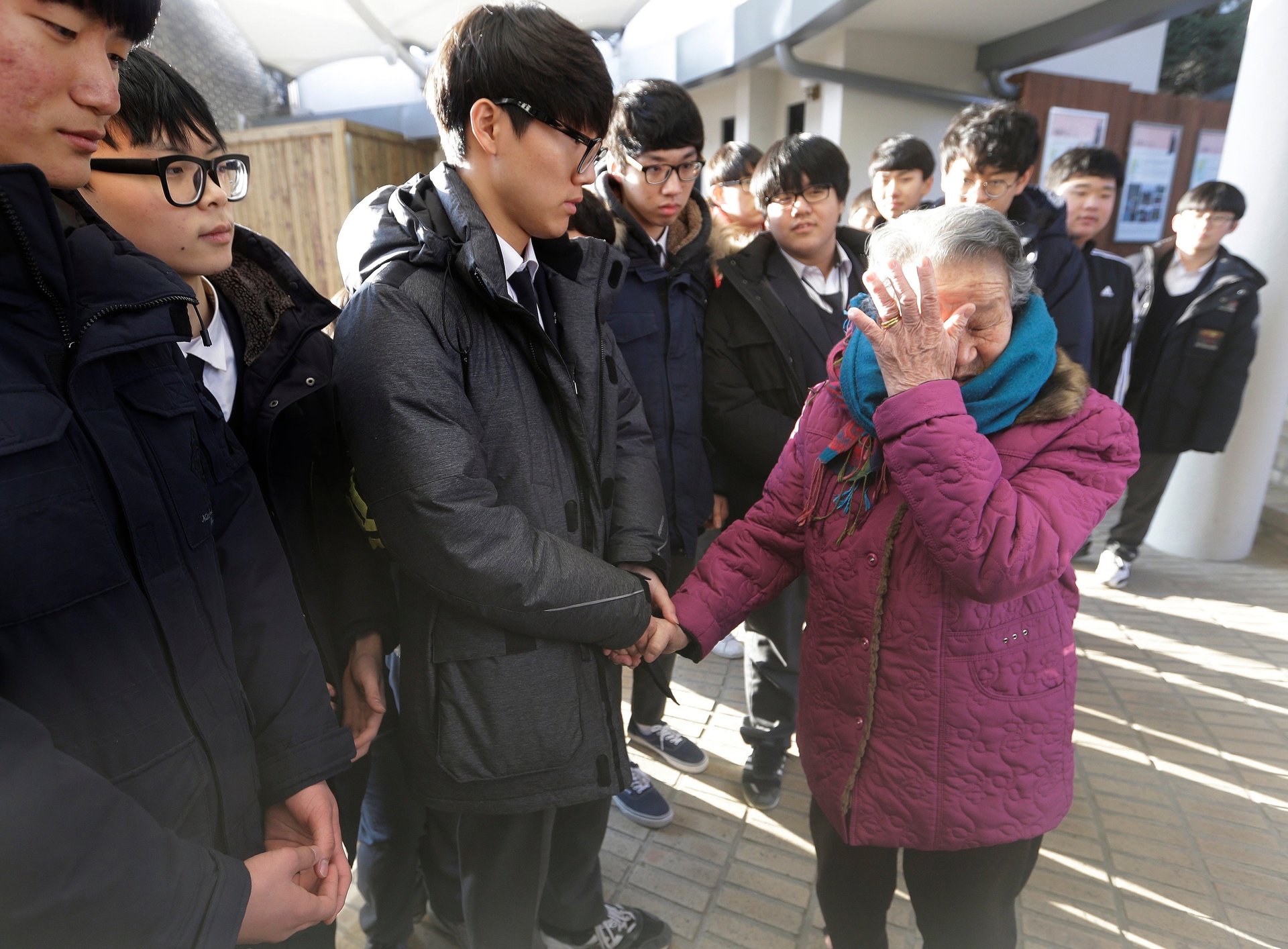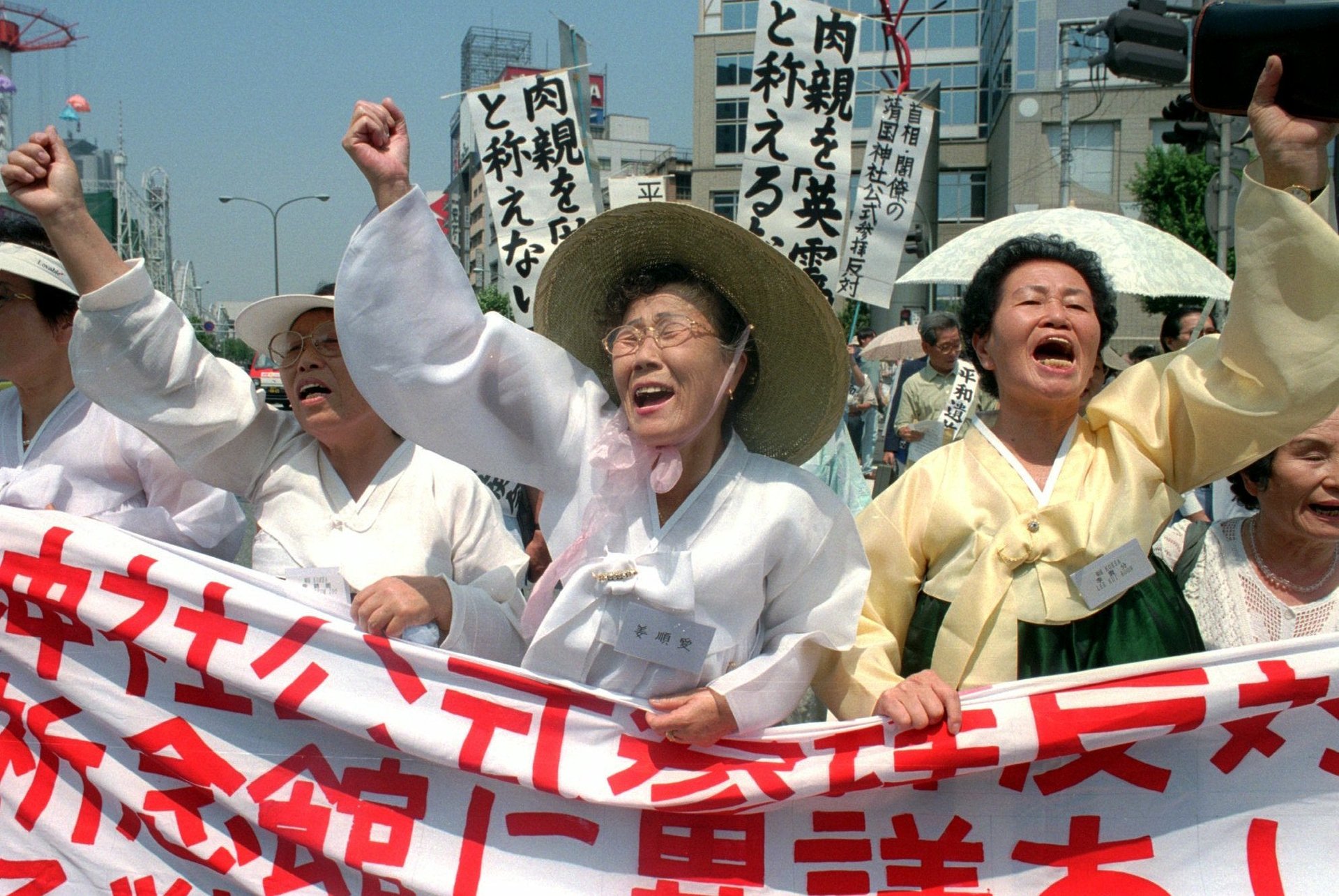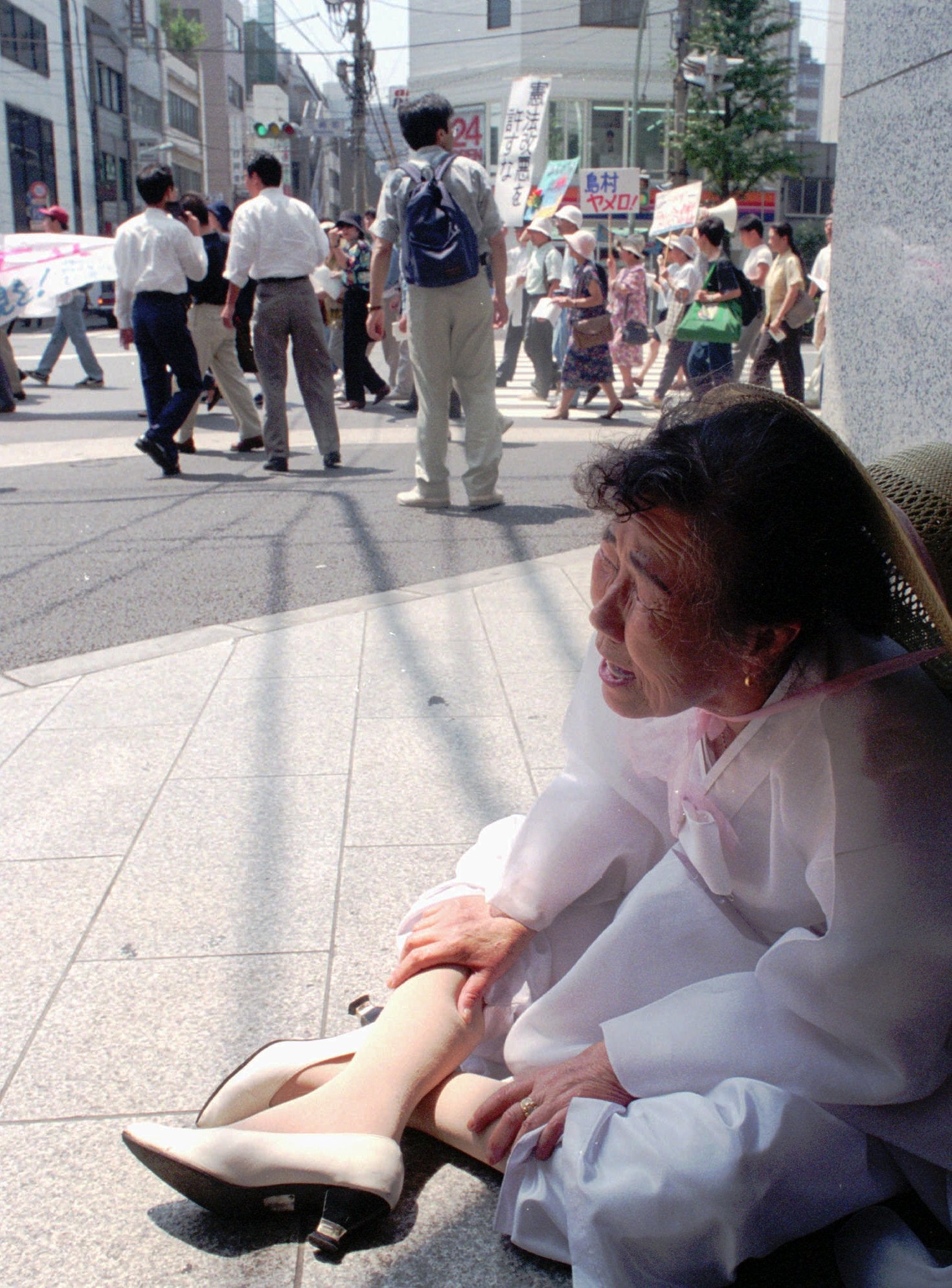Japan apologizes to Korean women held as wartime sex slaves after 70 years of silence
For the past 70 years, Korean women once forced to serve the Japanese army as sexual slaves during World War II have demanded justice from the Japanese government. Now Japanese prime minister Shinzo Abe has finally issued a formal apology, but South Korea’s so-called “comfort women” say that true justice remains out of reach.


For the past 70 years, Korean women once forced to serve the Japanese army as sexual slaves during World War II have demanded justice from the Japanese government. Now Japanese prime minister Shinzo Abe has finally issued a formal apology, but South Korea’s so-called “comfort women” say that true justice remains out of reach.
Abe’s apology accompanied a promise to pay 1 billion yen ($8.3 million) into a fund to provide reparations to the surviving women. The move, which resolves a longstanding dispute between Japan’s and South Korea’s foreign ministries, aims to improve relations between the two countries.

Out of an estimated 200,000 women coerced into serving as comfort women, only a few dozen survive today, according to CNN. The women were primarily drafted in South Korea and forced to serve Japanese troops stationed there. Some women from China and southeast Asia, along with a smaller number of women from Europe and Japan, were also drafted by Japanese units, according to The Guardian.
“Our job was to revitalize the soldiers,” Kim Bok-dong, an 89-year-old Korean woman forced into sexual slavery, told CNN. “On Saturdays, they would start lining up at noon. And it would last until 8 p.m.”

The South Korean government has called for the Japanese government to take legal responsibility for forcing women to work in military brothels and issue an official apology for the past half century. In 1998, the United Nations also urged the Japanese government to apologize for the war crime of drafting women into sexual slavery, compensate former comfort women and their families, and prosecute surviving military officials. The government did not comply.
South Korean foreign minister Yun Byung-se said on Monday that his country will consider the issue closed so long as Japan sticks to its promise to provide 1 billion yen in reparations. However, the Korean women coerced into serving soldiers say the agreement falls short because Japan did not admit legal responsibility, the New York Times reports. An advocacy group for the surviving women, The Korean Council for the Women Drafted for Military Sexual Slavery, said the apology amounts to little more than ”a diplomatic humiliation,” according to CNN.
China’s foreign ministry has expressed dissatisfaction with Japan’s apology and agreement, claiming it is mere diplomatic puppetry. Opposition parties in South Korea also criticized the deal, as did some observers who found the reparations (roughly $180,000 per survivor) insufficient.
“That’s really stingy,” Lee Sung-yoon, a Tufts University professor in Korean studies, told the Times. “You know what you get for a personal injury lawsuit after spilling hot coffee on yourself in America?” For the record: $522,000.